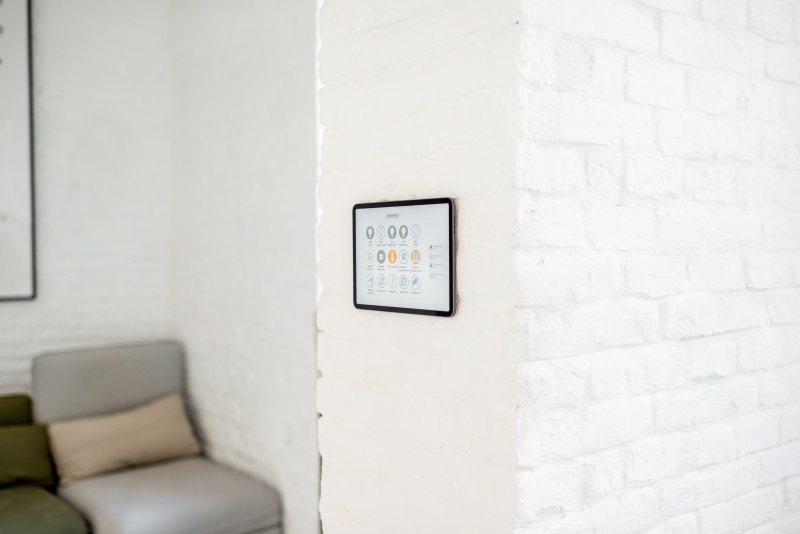SCADA systems, or Supervisory Control and Data Acquisition, are a central tool for remote operation, remote monitoring and control of industrial systems and processes. They consist of sensors and communication channels that collect real-time data from the different number of systems and devices. This required data is processed through a clear interface that allows companies to quickly analyze the data. Investing in a SCADA system has a big advantage if you want to monitor your business processes and make improvements in the process.
Table of Contents
How SCADA systems differ from other industrial automation technologies
SCADA systems are distinct from other automation technologies and are designed for industrial automation. It enables companies to gain remote visibility into their manufacturing processes and collect real-time data from industrial processes and equipment. SCADA also provides the ability to control industrial processes from a single point, improving efficiency and productivity. Moreover, its flexibility and scalability allow this system to respond to the changing needs of businesses. In short, SCADA provides companies with an effective tool for more successful business outcomes through improved production processes.
The main software and hardware components of a SCADA system
A SCADA system consists of a combination of software and components that provide real-time monitoring and control. Some of the essential components are:
- HMI (Human Machine Interface): The Human Machine Interface is software that allows users to retrieve understandable information that provides options for operating the system.
- PLC (Programmable Logic Controller): Programmable Logic Controllers are hardware devices used to collect and evaluate real-time data and execute control commands.
- RTU (Remote Terminal Unit): RTUs are hardware devices that facilitate the form of communication between sensors and the SCADA system.
- Database server: The database server provides storage and management of all collected data.
- Control software: Software for control processes is used to control and automate them.
- Network components: Network devices, such as switches, routers and modems, facilitate effective communication between SCADA system components.
By unifying the acquisition software and hardware components, your organization can monitor and control your activities in real-time and improve the efficiency, reliability and quality of products and services.
OPEN CALCULATION
OFFER IN 5 DAYS
SUSTAINABLE INNOVATIONS
UL/CSA
AT HOME
How SCADA systems help improve manufacturing processes
As you understand, the systems are designed to help companies improve their manufacturing processes. Below are some of the ways SCADA systems help improve manufacturing processes:
- More efficient control: SCADA systems offer companies better control over production processes, leading to higher productivity and fewer errors.
- Quality improvement: The systems enable companies to optimize their products and processes through real-time monitoring and enhanced control.
- Reducing costs: As a company, you can minimize costs by applying efficient control and quality management, leading to fewer product rejects and lower maintenance costs.
- Data analytics: SCADA systems allow companies to gain insight into their production processes, enabling optimization and improvement.
Reduction of unplanned downtime and maintenance costs
Using a SCADA system offers numerous benefits, including reduction of unplanned downtime and maintenance costs. Here are some ways a SCADA system can help:
- Predictive maintenance: Predictive maintenance also uses real-time data monitoring and analysis to improve insight into control of production processes. This allows them to anticipate when maintenance is needed before downtime occurs.
- Improving operational reliability: The application of real-time monitoring and control measures can increase reliability and minimize unplanned downtime. Proactive management provides great benefits in this case.
- Reducing energy and resource use: Companies can control and manage resource use in most cases to minimize consumption. This leads vaan to cost savings and greater operational efficiency.
- Reducing human error: Implementing real-time monitoring can help minimize human error. Setting key alarms, for example, will eventually reduce downtime and maintenance costs. For example, these alarms can be sent to the cell phone by communication over the Internet.
In short, real-time monitoring and control enable companies to reduce unplanned downtime and maintenance costs through predictive maintenance and minimizing human error.

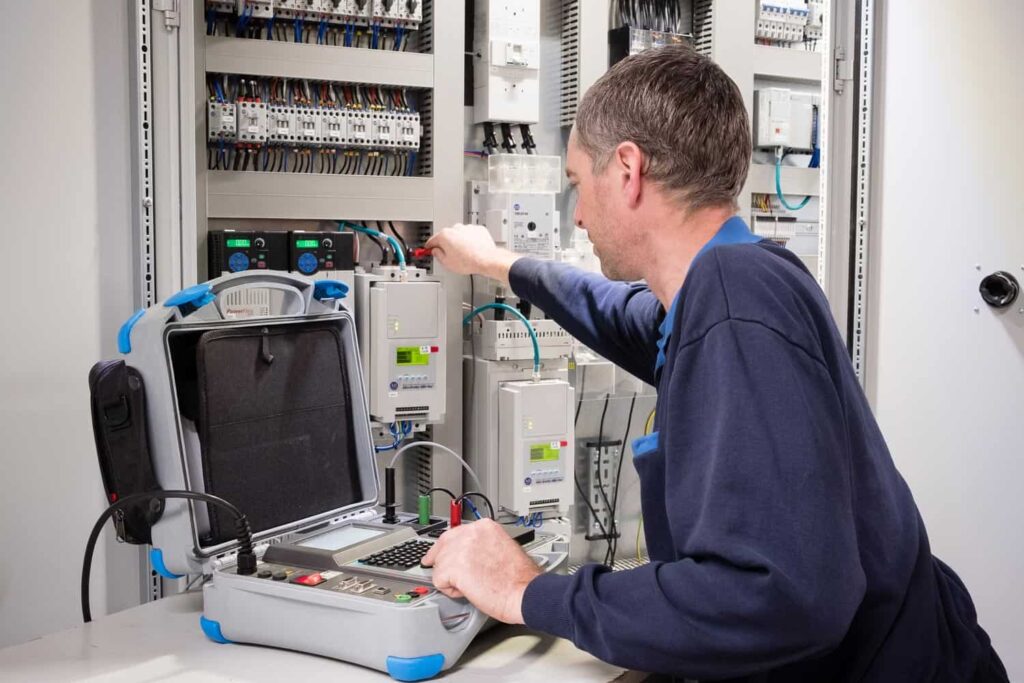
Contact our experienced innovator
Cees Brasser
With more than 26 years of experience at the helm of Gerbin Control, Cees Brasser is your expert on panel construction for the machinery sector. Discover how his knowledge and insight can take your project to new heights. Get in touch now!
Application areas of SCADA systems
Supervisory Control and Data Acquisition systems are universally applicable in a wide range of industries. From manufacturing and processing plants to energy and water distribution systems, SCADA, as indicated earlier, provides real-time visibility and control over the performance of operational technology and processes. Below is an overview of some common industries where SCADA systems are used:
- Manufacturing and processing plants: SCADA technology allows manufacturers and processors to more efficiently control and manage their production and processing operations.
- Energy sector: SCADA systems provide information on the operation of energy production and distribution. this helps companies optimize their energy consumption and improve energy security.
- Water distribution: The systems can be used to monitor and control water distribution systems. Integrating a system can help companies, within this sector, improve water quality and ensure water availability.
- Infrastructure: SCADA systems are used to monitor traffic and transportation infrastructure, allowing traffic managers to improve safety and manage traffic flow more effectively.
- Environmental management: SCADA technology can be used to understand environmental protection systems. Over time, this will help improve environmental quality and reduce environmental impacts.
SCADA systems are widely used in various industries to improve operational performance and increase efficiency.
Integration of SCADA systems with other systems
SCADA systems can be easily integrated with other technologies, such as ERP and production recording systems, to get real-time information about production processes and analyze them. Merging data on production, distribution and sales through SCADA integration creates a complete picture of the company. This makes it possible to react quickly to changes in the market and make improvements in the short term. This application can improve efficiency and effectiveness, leading to an improvement in the ultimate bottom line.
Your electrical engineering ambitions, our mission
Our expert team at Gerbin Control is ready to turn your electrical issues into concrete solutions. Are you ready for the next step?
Tips for choosing the right hardware and software for your specific needs
Manage production with one of the leading SCADA systems we can provide. Choosing the right hardware and software for your SCADA system is very important here. The right system maximizes productivity, reliability and efficiency. The decision should at least consider several factors, such as company size, SCADA system applications, not to mention budget. In addition, it is beneficial to research vendor sales and support services prior to purchase. We are happy to help you choose the ideal hardware and software for your SCADA system. This allows us to guarantee that you get an efficient and reliable system that meets your requirements.
Related Articles
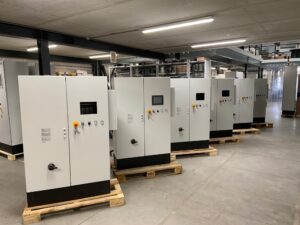
What trends in panel building can we expect for 2024?
The world of panel building is one of constant evolution and innovation. As technology advances, market expectations are increasing. But what trends in panel construction can we expect for 2024? At Gerbin control, an industry leader in producing high-quality electrical panels, we took a look at what the future holds for us.

The role of reuse in panel building within the circular economy
When building modern infrastructures and systems within industry, panel construction plays a crucial role. But have you ever wondered how panel construction can contribute to
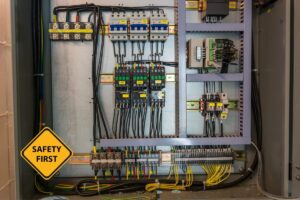
The importance of certified panels for safety and quality
In an era where technology and innovation go hand in hand, Gerbin Control has established itself as a leading panel builder. Safety and quality are
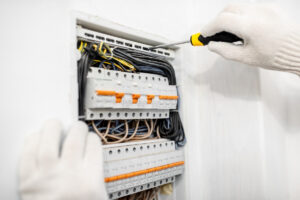
Are energy-efficient panel systems the key to a better planet?
In a world where sustainability is no longer a luxury but a necessity, we are constantly looking for ways to reduce our carbon footprint. One
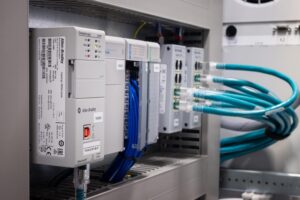
The best choice of materials for durable panel construction
If there is one thing we are passionate about at Gerbin Control, it is the innovation and quality that goes hand in hand with sustainable panel construction. When choosing the best materials for panels, there are several factors to consider. In this article, we dive deeper into those choices, drawing on our years of experience in the industry.

How panel systems are the bridge to the Internet of things
At Gebin Control, we recognize the revolutionary power of panel systems and their integration into the emerging world of the Internet of Things (IoT). In


